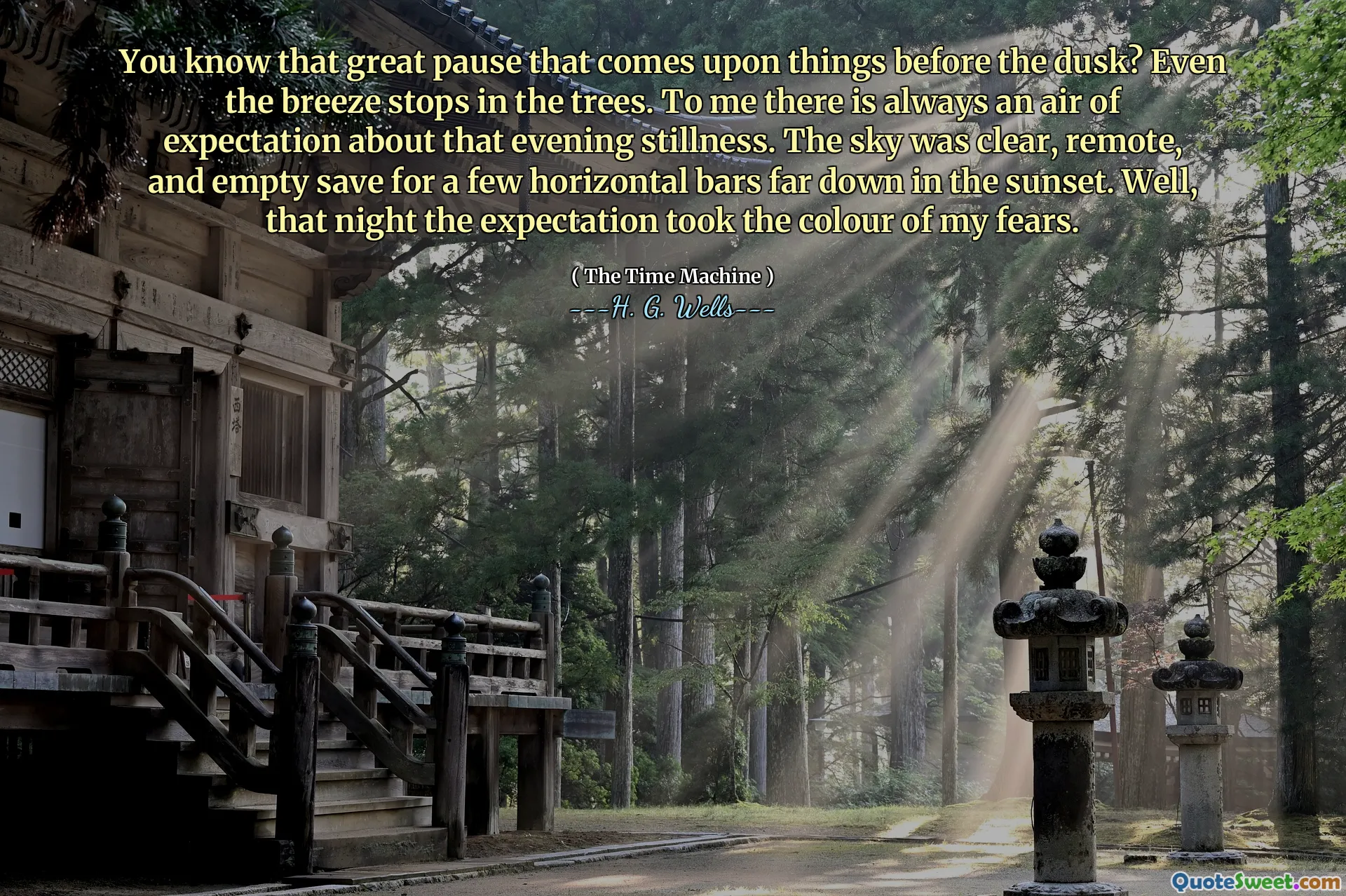
You know that great pause that comes upon things before the dusk? Even the breeze stops in the trees. To me there is always an air of expectation about that evening stillness. The sky was clear, remote, and empty save for a few horizontal bars far down in the sunset. Well, that night the expectation took the colour of my fears.
In H.G. Wells' "The Time Machine," the author captures a moment of stillness that often precedes dusk. This atmosphere evokes a sense of anticipation, where even nature seems to pause in preparation for the night. The sky is described as clear and sparse, contributing to the serene but charged environment that envelops the scene.
However, for the narrator, this stillness transforms into a manifestation of deeper fears. Rather than simply a moment of beauty, the evening brings an unsettling sense of dread, suggesting that the tranquility of dusk can also reveal inner anxieties. This juxtaposition of calmness and fear reflects a profound emotional complexity inherent in twilight moments.











